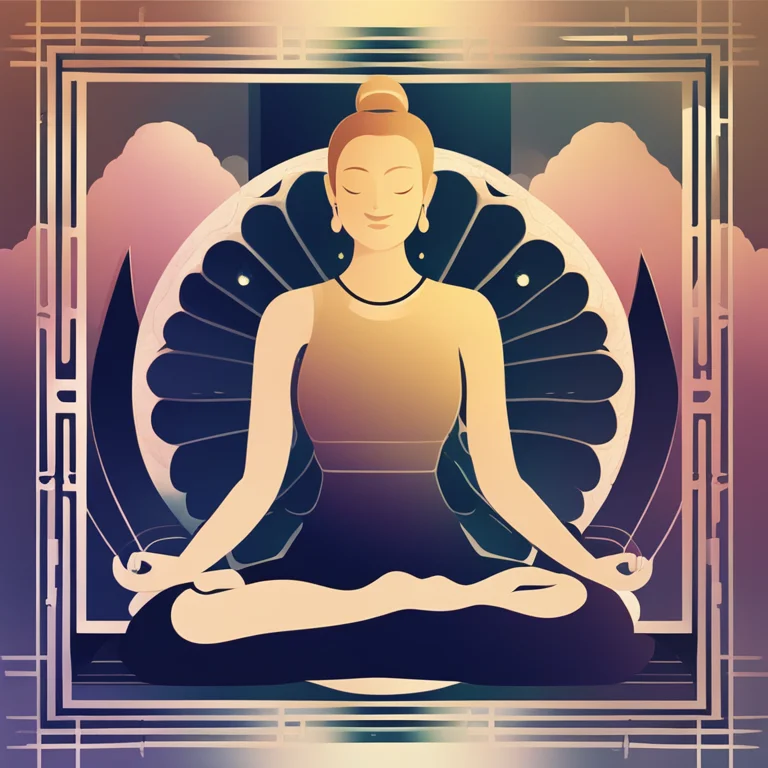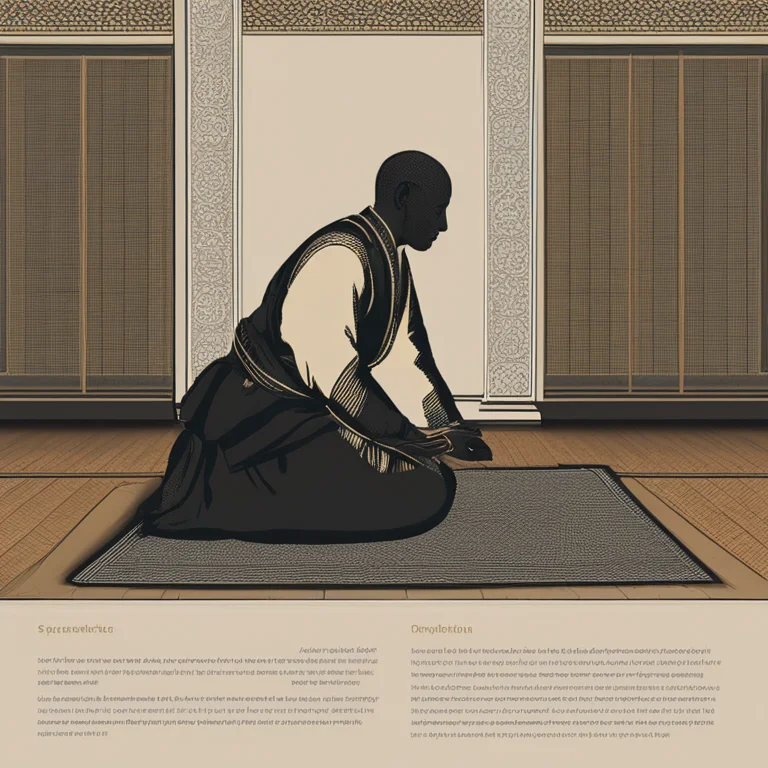
Meditative Postures for Mind & Body Harmony
Gain insight into the crucial meditation positions designed for enhancing mindfulness and achieving inner equilibrium.
article by Hina Kurosawa
The Foundation of Meditation: Choosing Your Pose
Meditation is an ancient practice that continues to hold significance in the technologically advanced landscapes of 2024 and beyond. Finding the right position is the cornerstone for entering a meditative state. Your posture influences your mental clarity and helps in maintaining the physical comfort necessary for prolonged sessions. A suitable pose should keep the back straight, promoting alertness while allowing energy to flow freely throughout the body. As we progress into a future with more virtual interactions and potentially augmented reality sessions, the core principles of physical positioning remain undeniably pertinent.

Lotus Position: The Quintessential Meditation Posture
The Lotus position, or Padmasana, has become emblematic of meditation for good reason. It is believed to create the necessary conditions for deep meditation by aligning the body and calming the mind. The pose involves sitting cross-legged with each foot placed atop the opposite thigh. This creates a stable and symmetrical base. Moreover, the Lotus position is said to stimulate the chakras and facilitate easier breathing, making it a timeless choice for both novices and seasoned meditators. With the rise of holistic health movements in 2024, this traditional posture has gained even more popularity.

Burden-Free: The Kneeling Meditation
For those who find sitting cross-legged uncomfortable, the Kneeling or Seiza position offers a liberating alternative. By kneeling with a straight spine, the weight is distributed through the shins and takes pressure off the back. This can be particularly beneficial for individuals with limited flexibility or joint issues in the age of increasing sedentary lifestyles. The Kneeling position, often enhanced with meditation benches or cushions, ensures sustainability of practice. As ergonomic products continue to evolve, finding support for this posture becomes easier and more intuitive.

The Chair Pose: Adaptable Meditation for Modern Living
With the modern environment necessitating prolonged periods of seated work, the Chair pose stands out for its practicality and ease. This position involves sitting on a chair with feet flat on the ground, promoting spinal alignment without the need for floor seating. It accommodates all levels of flexibility and offers an inconspicuous way to integrate meditation into a busy schedule—perfect for quick breaks during work hours. Advances in ergonomic chair design in 2024 further help in maintaining posture and boosting the overall meditative experience.

The Supine Position: Relaxation and Receptivity
Meditation is not strictly limited to seated or kneeling positions. The Supine position, or Savasana, is performed lying on one's back and is often used at the end of yoga practices. It allows every muscle to relax, making it highly conducive to deep relaxation and stress relief. The act of lying down can also lead to a more profound sense of surrender. Furthermore, with the introduction of sensory-deprivation tanks and sound-healing mats, the Supine position in 2024 offers a multitude of avenues for reaching new depths of relaxation and recovery.
Standing Tall: The Active Meditation Stance
Active lifestyles call for an active meditation stance, and Tadasana, or the Mountain Pose, answers that call. Standing meditations involve grounding oneself with the earth, aligning the body’s center, and tuning into bodily sensations. This pose is actively explored in movement-based meditation practices such as Qigong or Tai Chi, which have seen a resurgence with the advent of digital wellness communities. Even in the simplicity of standing, there is a powerful opportunity for cultivating mindfulness and vitality.
Personalizing Your Practice
The year 2024 values personalization, and meditation practices are no exception. While traditional postures provide guidelines, it's essential to remember that comfort and alignment should guide your choice. Listen to your body, adapt positions with props or modifications, and consider the recommendations of meditation and wellness apps that learn and adjust to user preferences. Ultimately, your meditation position should be a dynamic choice that supports your journey toward inner peace and clarity.
Published: 1/9/2024
Modified: 1/9/2024
More predictions
Come back here soon to learn more about yourself and your future


Serenity Through Meditation Retreats
Embark on a transformative journey at a meditation retreat to recharge, refocus, and reconnect with your inner self.


The Harmony of Meditation & Sleep
Discover how meditation enhances sleep quality and overall well-being through mindful practices and relaxation techniques.


Retreat into Serenity: A Meditation Haven
Discover the transformative power of a meditation retreat and find tranquility for mind, body, and spirit in our comprehensive guide.